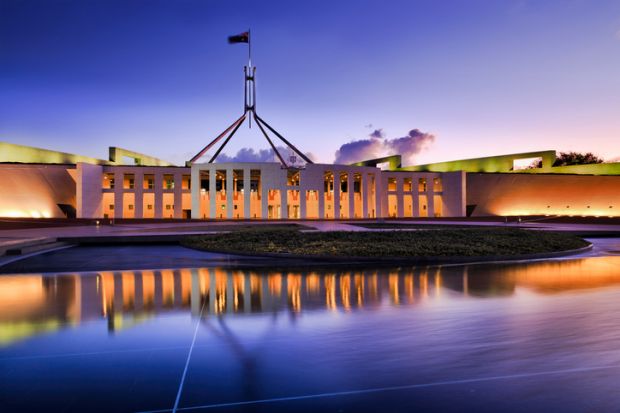Australia’s Senate has ordered the government to reveal how many researchers have been denied funding for falling foul of a little understood rule banning mentions of preprints in Australian Research Council (ARC) grant applications.
The Senate passed a motion requiring the government to outline the number, monetary value and disciplinary fields of applications deemed ineligible under the new rule. Greens senator Mehreen Faruqi, who moved the motion, said the council would have to provide “critical” details about its impacts.
“The ARC has been less than forthcoming and frankly quite secretive,” Dr Faruqi said. “It’s absolutely essential that [the] ARC’s actions are accounted for and the research community’s concerns heard.”
Times Higher Education asked the office of education minister Alan Tudge whether the government would comply with the motion. It had not responded by time of publication.
ARC records show that 47 applications to the Discovery Early Career Researcher Award (DECRA) and mid-career Future Fellowships schemes were deemed invalid in the latest funding rounds, up from a handful six years ago. At least 22 applications are thought to have been ruled out after having been assessed, sometimes incorrectly, as citing preprints.
Researchers now fear that submissions to the much larger Discovery Projects scheme, which attracts about three times as many applications as DECRA, will meet a similar fate.
An ARC spokeswoman said the council was “reviewing the requirements” following “feedback from the sector”. The ARC “continues to consider the best way to deal with preprints, which is appropriate across all disciplines,” she said.
“All grant rounds which have opened since September 2020 have had this eligibility requirement. The eligibility process is still ongoing as the Discovery Projects grant opportunity has not been finalised.”
Outrage over the new rule is escalating. An open letter demanding a rethink has attracted more than 600 signatories from universities and other research institutions in 15 countries.
“Referencing preprints is essential for assessing the quality, novelty, benefits, feasibility and value of any research proposal,” it says.
A letter signed by more than 50 top Australian physicists, chemists and mathematicians, including astrophysicists Brian Schmidt, Lisa Kewley and Matthew Bailes, begs the ARC to reverse the rule “as a matter of urgency”.
The letter says major science funding agencies in the US, the UK, France and elsewhere permit or encourage the citation of preprints in grant proposals. “This is particularly important…where there is a long lead time between journal submission and publication. Citing preprints in publications, reports or grant applications is an entrenched disciplinary norm in these fields.
“We are not aware of any consultation with our scientific communities about this change. This rule…is unworkable and inconsistent with standard practice in our disciplines.”
Dr Faruqi told parliament that the rule particularly disadvantaged “fast-moving” fields. “It is completely counterproductive…especially in the ever-changing research world of 2021.
“This saga has…hit a nerve about the broken model of research funding in this country. Increasingly, thousands of bright, motivated, curious researchers across the country feel like their contributions are being completely disregarded and devalued.”





